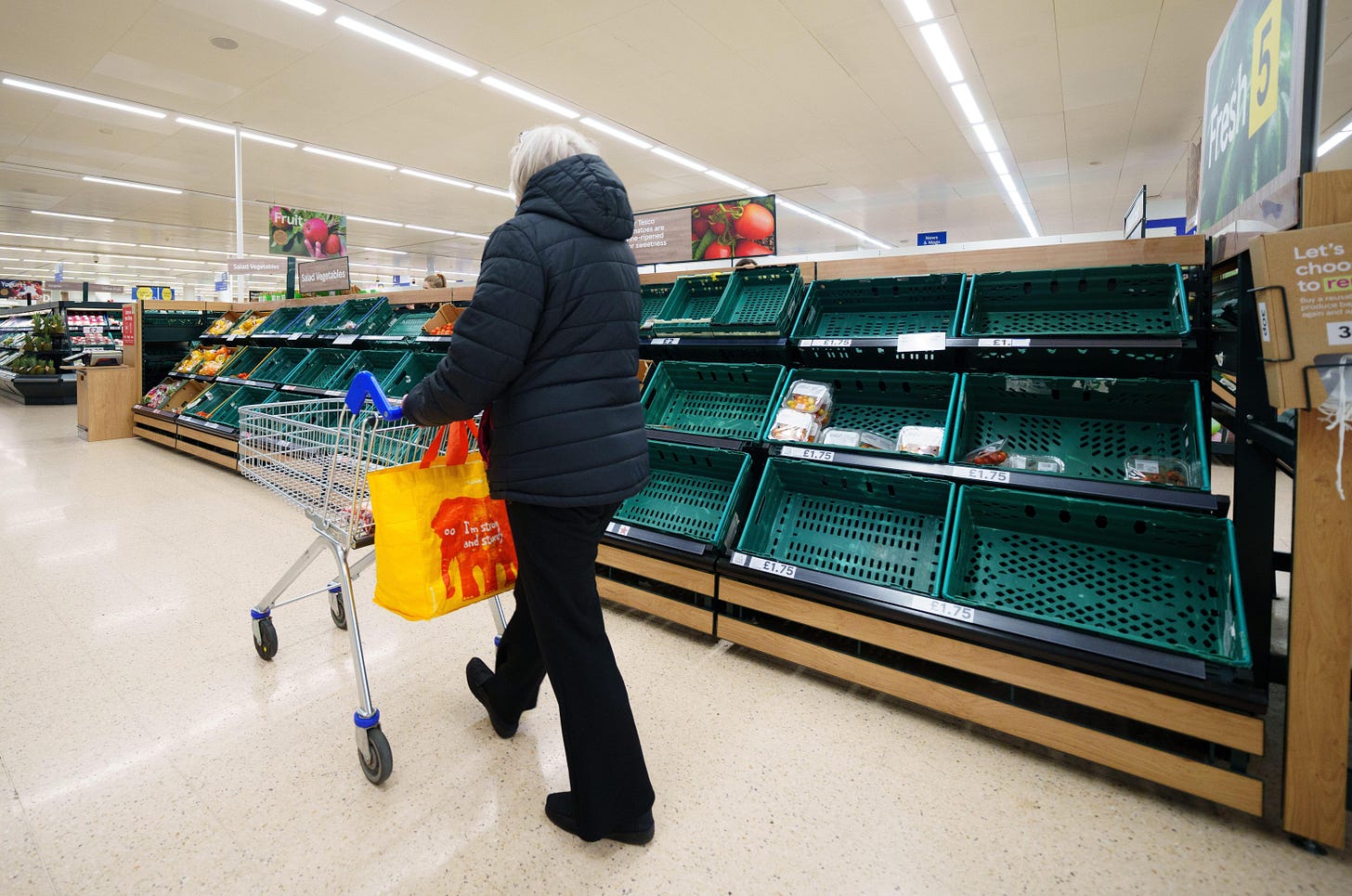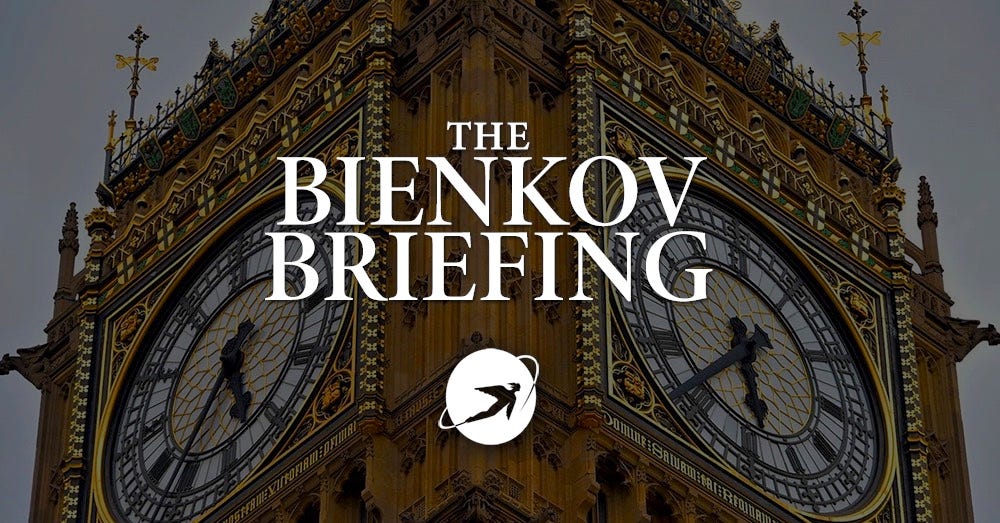Brexit Has Made Food More Expensive and Harder to Get Say Voters
Exclusive poll finds voters blame Brexit for higher food prices and widespread shortages
IN THIS WEEK’S BIENKOV BRIEFING:
EXCLUSIVE: VOTERS BLAME BREXIT FOR SURGING FOOD PRICES
60% SAY LEAVING EU TO BLAME FOR SPIRALLING PRICES
HALF SAY FOOD ITEMS HARDER TO FIND AFTER BREXIT
SUNAK’S HIDDEN TAX RETURNS RAISE MORE QUESTIONS
JOHNSON’S COMEBACK SELF-IMPLODES
British people blame Brexit for making their weekly food shops more expensive, with food items now harder to find since leaving the EU, according to an exclusive new poll for the Byline Supplement.
Brexit campaigners, such as Conservative MP Jacob Rees-Mogg, had promised in the run-up to the 2016 referendum that leaving the EU would cut food prices by up to 20%.
Right-wing think tanks, such as the Institute for Economic Affairs also predicted that leaving the EU would allow food prices to “tumble”.
However, according to our poll, conducted by pollsters Omnisis, 60% of all voters now believe that Brexit has actually pushed up prices instead.
This compares to just 3% of UK voters who believe that Brexit has reduced prices as promised.
The findings are backed up by recent academic research, showing how increased barriers to trade with Europe have pushed up the price of many basic ingredients.
Average food bills rose by 6% as a direct result of Brexit in the first two years since leaving the EU, according to the research published last December by the London School of Economics’ Centre for Economic Performance.
“In leaving the EU, the UK swapped a deep trade relationship with few impediments to trade for one where a wide range of checks, forms and steps are required before goods can cross the border. Firms faced higher costs and passed most of these onto consumers”, Professor Richard Davies, who co-authored the study, said.
The findings come as UK supermarkets are hit by shortages of certain fresh ingredients, such as tomatoes, over recent weeks.
Rishi Sunak’s Government has denied that the shortages, which appear to have hit the UK significantly harder than other European countries, are due to Brexit, blaming bad weather and Europe-wide energy price increases instead.
However, our poll finds that voters are as likely to blame Brexit for the shortages as they are any of these other factors.
41% of all voters said Brexit was at least partly to blame for the shortages, with 42% also pointing to rising energy prices and 44% pointing to bad weather.
A further 49% said that Brexit had made it harder to find food items in the UK. Just 5% of all those polled said it had made it easier.
Responding to the poll, Cary Mitchell, Director of Operations for Internationalist campaign group Best for Britain said:
“Voters feel that Brexit has made food more expensive because, contrary to the promises of people like Jacob Rees-Mogg, it has with UCL estimating that it has added more than £200 on the average annual household food bill.
“The government must build on the pragmatism and maturity they have demonstrated on Northern Ireland and remove Brexit trade barriers which have reduced choice for consumers and hit them in the pocket.”
What is Rishi Sunak Hiding in his Finances?
Rishi Sunak promised last summer to release his full tax returns should he become Prime Minister, saying “that is the established precedent and I’d be very happy to follow the precedent.”
He later promised to release them by Christmas of last year, only for his self-imposed deadline to come and go.
Repeated enquiries by this publication about the whereabouts of the missing documents have been rebuffed by Sunak’s spokespeople over recent months.
Yet with each week that passes, a suspicion grows that there is something contained within them that Downing Street simply doesn’t want to put into the public domain.




